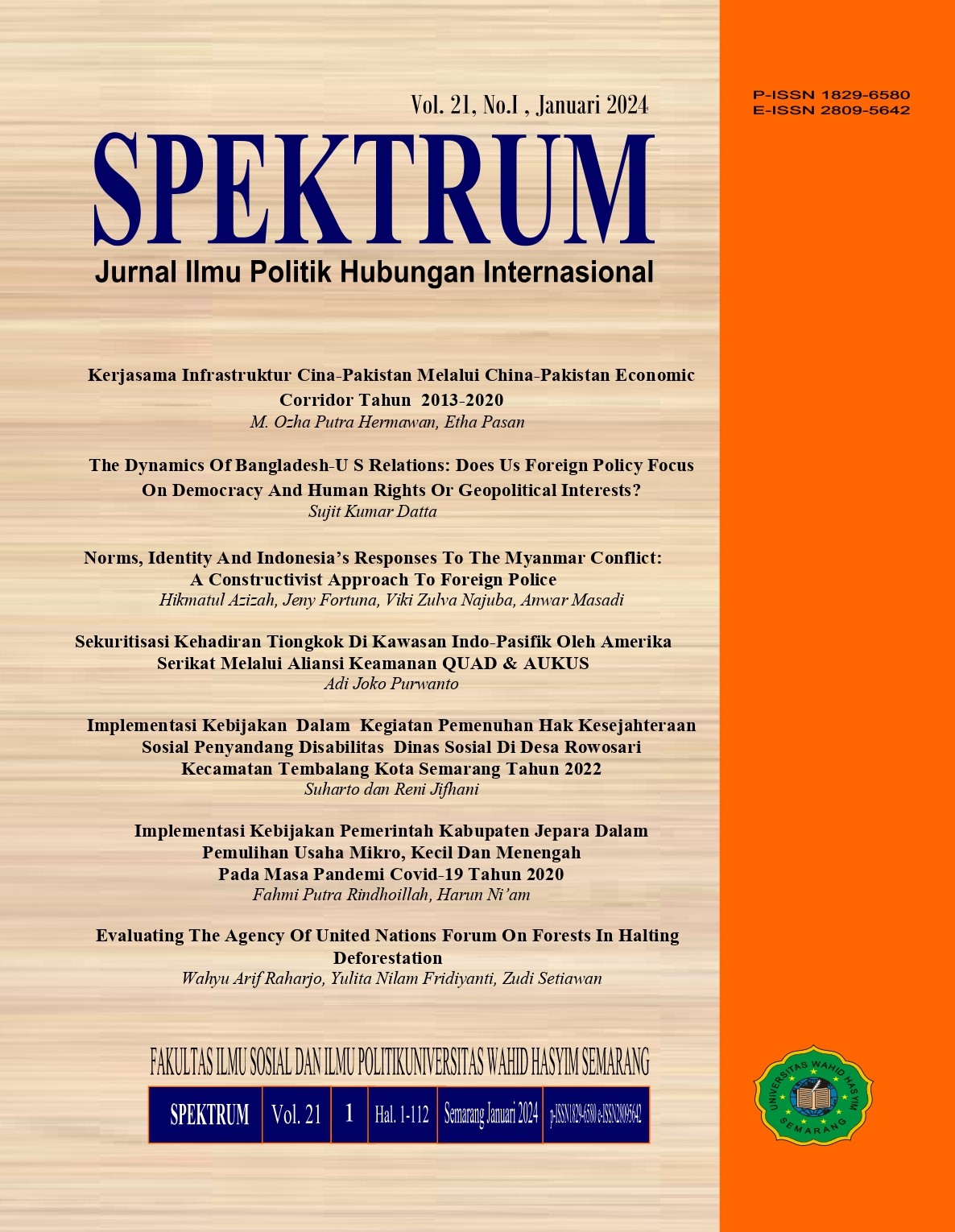Main Article Content
Abstract
The bilateral relationship between Bangladesh and the United States has undergone significant shifts over the years, shaped by complex interactions between democratic ideals, human rights concerns, and geopolitical interests. This study examines the multifaceted dynamics of Bangladesh-US relations, focusing on analyzing the extent to which US foreign policy prioritizes democracy, human rights, and geopolitical considerations. The study draws upon a comprehensive literature review of scholarly works, official documents, and expert analyses related to the historical context and critical milestones in Bangladesh-US relations. The present study employs a mixed-methods technique to incorporate qualitative data, which contributes to a comprehensive comprehension of the intricate aspects that shape United States foreign policy choices concerning Bangladesh. Using case studies and examining policy initiatives, this analysis assesses the concrete results of democracy and human rights measures, elucidating their influence on the bilateral relationship. Furthermore, the research explores the role of geopolitical considerations in shaping US engagement with Bangladesh. This analysis aims to evaluate the tangible outcomes of democracy and human rights measures by employing case studies and analyzing policy efforts. Through this approach, the study seeks to shed light on the impact of these measures on the bilateral relationship. This report provides a comprehensive overview of the Bangladesh-US relationship, seeking to establish whether the US foreign policy strikes a delicate balance between promoting democracy and human rights while addressing its geopolitical interests.
